Is cryptocurrency an important issue in swing states? An in-depth analysis of Harris Poll’s crypto survey in swing states
Written by: Weilin
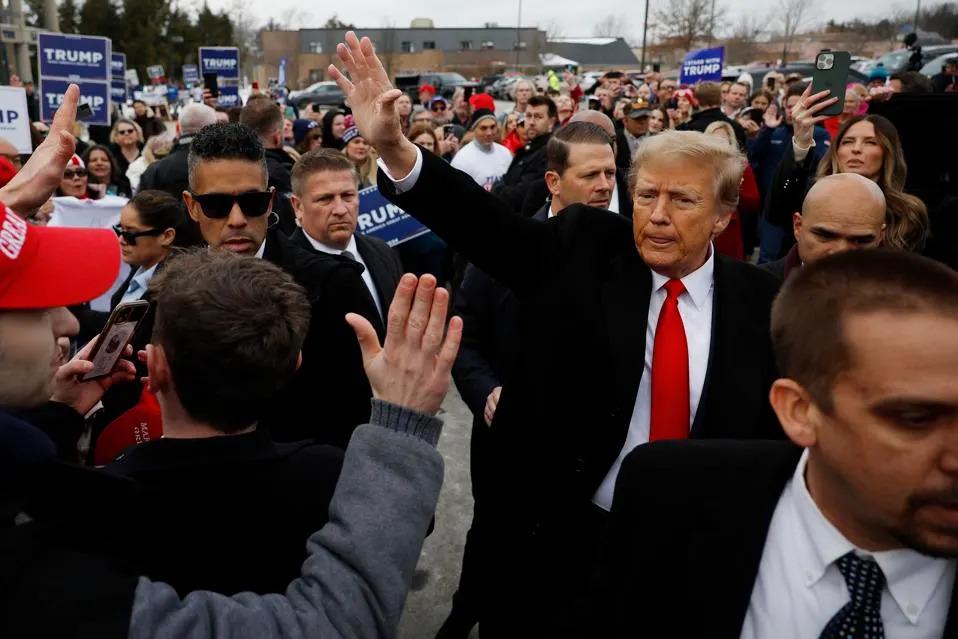
In the US presidential election, swing states are important targets for the Democratic and Republican parties. Since no particular candidate or party has overwhelming support to obtain electoral votes in these states, winning the electoral votes in these states is very important to winning the election.
Earlier this month, Harris Poll, a veteran polling organization founded in 1963,Blockchain风险投资公司 Digital Currency Group 联合发布了一份《摇摆州的加密货币态度》民调 (Crypto Attitudes in Swing States)。这份调查的受访者为 1201 名注册的美国选民,他们均来自政治上举棋不定的摇摆州。与此同时,最近民主党对加密货币的政策转向,以及共和党对加密货币展现的友好态度,也佐证了这个报告的一些发现。
The 45-page poll report shows some key results. For example,Xiaobai Navigation% of voters surveyed want political candidates to talk more about digital currencies; more than half are concerned that policymakers are suppressing innovation through excessive regulation; nearly half of voters do not trust political candidates who would interfere with cryptocurrencies; a quarter said that enthusiasm for cryptocurrencies would make them trust a political candidate more; 30% of people said they would be more inclined to support political candidates who are friendly to cryptocurrencies.
The survey was conducted from April 4 to April 16 and took the form of a 10-minute online questionnaire. Eligible voters need to be U.S. residents aged 18 or above and live in swing states, including Michigan, Nevada, Ohio, Montana, Pennsylvania, and Arizona. Participants need to register as voters in the state where they live. Here are more details about the poll.
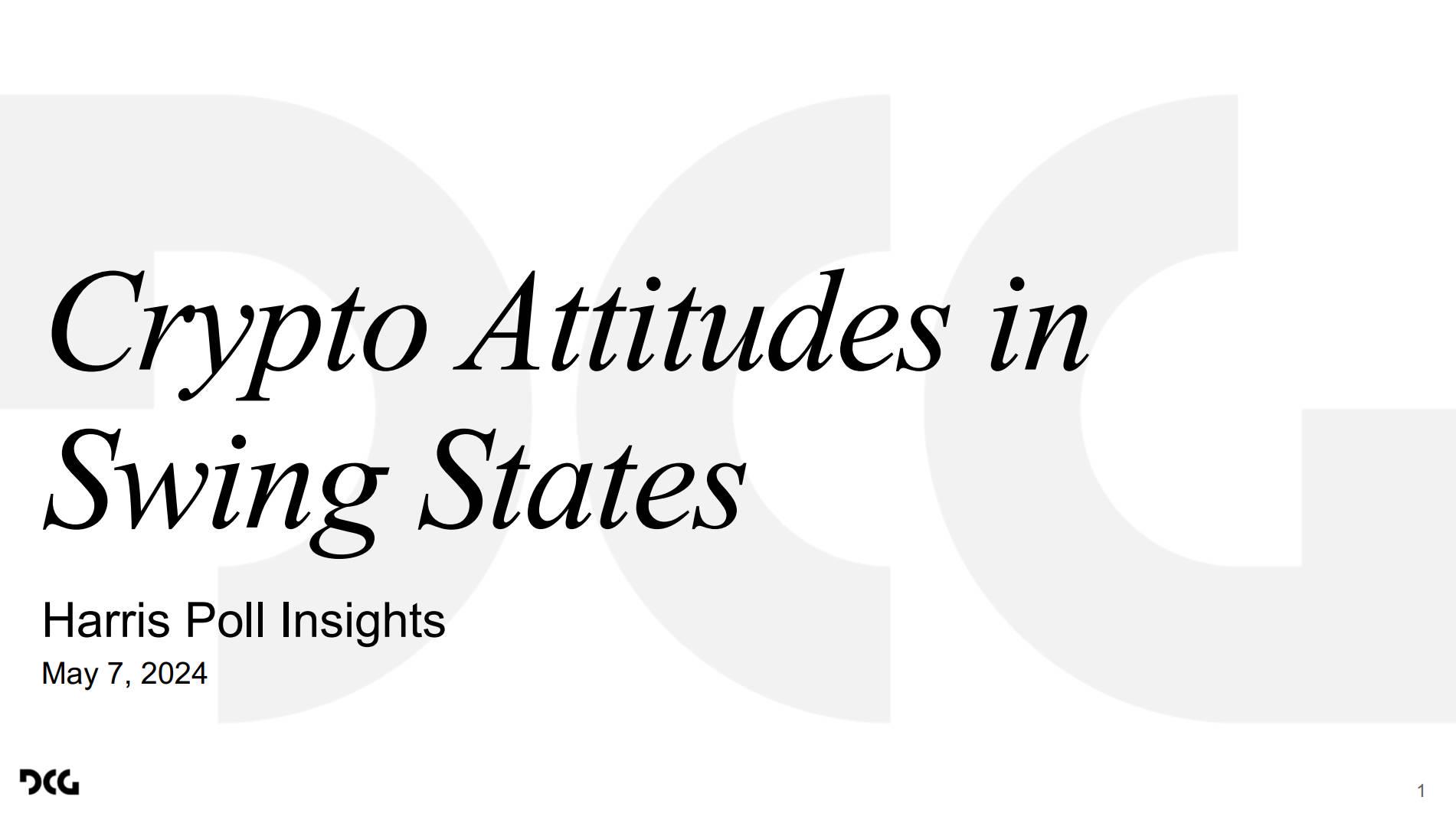
Finding 1: The current financial system is generally unpopular, with voters generally believing that the system is unfair, with the younger generation in particular being disadvantaged.
-
Specifically, the current financial system evokes negative reactions from voters, with most believing that the system favors the elite over ordinary people (80%), lacks transparency (79%), is difficult to understand (67%), and sets up the younger generation for failure (63%).
-
Conversely, few believe that the current financial system is designed for people like themselves (38%) or fair to everyone (26%).
-
Interestingly, the majority of respondents (60-65%) had an overall positive attitude toward their current and future personal financial health (60-65%) and were also positive about their understanding of the financial system (77%). However, this positive attitude did not translate into a positive feeling about the current financial system as a whole.
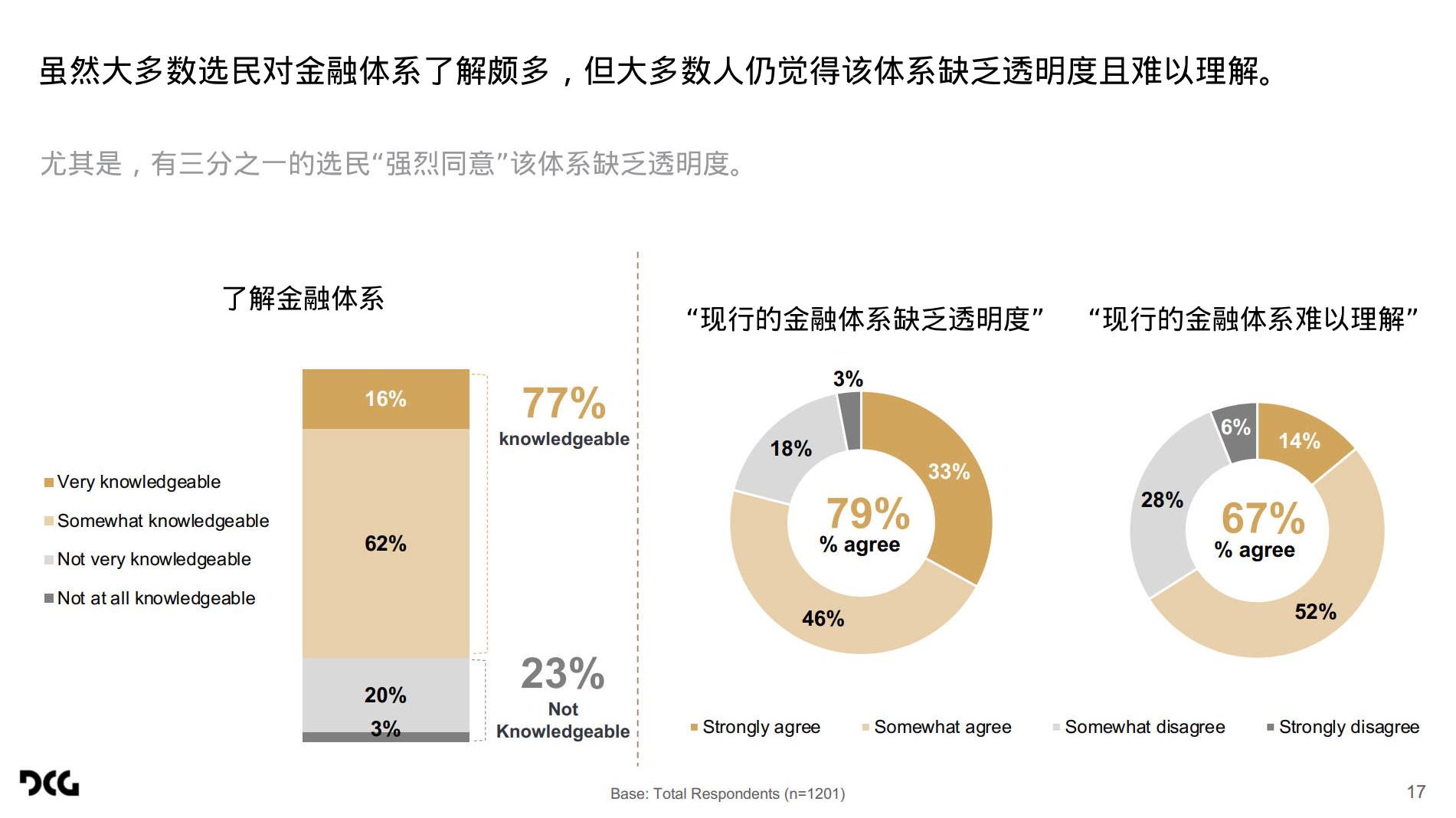
Finding 2: Cryptocurrencies attract a certain level of interest among a significant number of voters, which forms a pro-cryptocurrency sentiment.
-
The percentage of voters who currently own cryptocurrencies is relatively low (14%), and most are not familiar with cryptocurrencies (69%). About one in five voters plan to own cryptocurrencies within the next six months.
-
However, nearly a third of voters have a positive attitude toward cryptocurrencies (referred to as “crypto-positive”). Crypto-positive voters are consistently more enthusiastic about cryptocurrencies than voters overall; most associate cryptocurrencies with positive traits such as innovation (62%), promising (50%), and accessible (45%).
-
Most crypto-positive voters agree that crypto represents a path to financial stabilitySafetyand a new way to prosper (83%), is the future way of trading (79%), creates a level playing field for financial health (77%), and is designed for people like yourself (70%).
-
While skepticism about crypto exists, about half of voters overall, and a majority of crypto-positive voters, say they would be more likely to buy cryptocurrencies if the assets were offered by established or regulated companies (501 TP3T overall, 761 TP3T among crypto-positives) or if the government had consumer and investor protection laws in place (481 TP3T overall, 691 TP3T among crypto-positives).
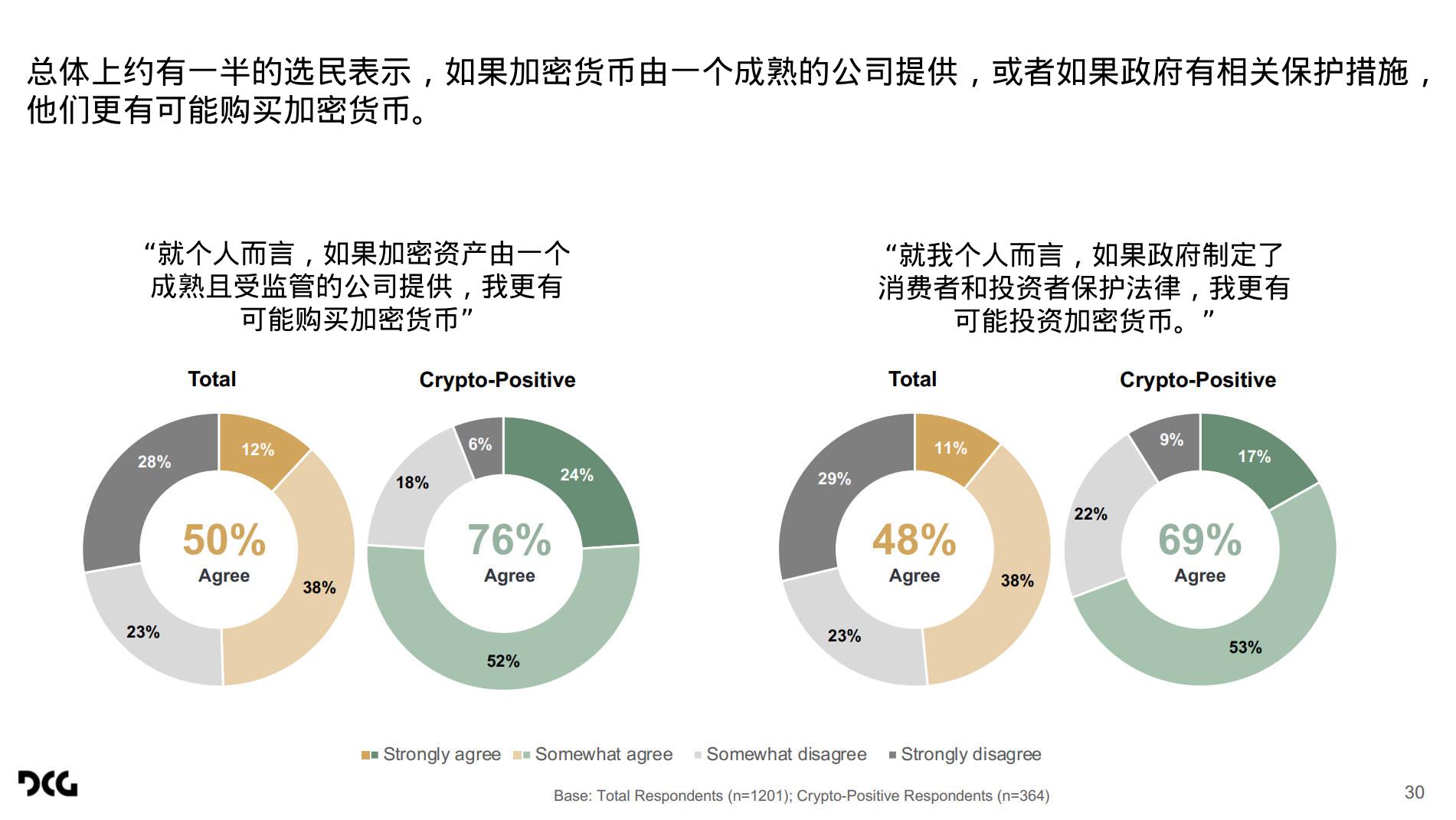
Finding 3: Raising cryptocurrency as an election issue could provide key opportunities for political candidates.
Overall, a large majority of voters and crypto-active voters plan to participate in the upcoming 2024 election (90%+), with support for the Republican and Democratic parties close.
-
A significant number of voters (40%) want political candidates to talk more about digital currencies.
-
Most voters do not trust elected officials to understand innovative technologies like cryptocurrencies, and more than half worry that policymakers are stifling innovation through excessive regulation. The vast majority want policymakers to make sure they understand cryptocurrencies before regulating.
-
Nearly half of voters distrust political candidates who would interfere with cryptocurrencies. A quarter said enthusiasm for cryptocurrencies would make them trust a political candidate more. 30% said they would be more inclined to support a crypto-friendly political candidate.
-
Crypto-active voters are more strongly supportive of the pro-cryptocurrency stance than voters overall.
-
Notably, cryptocurrency regulation enjoys broad support. An overwhelming majority of voters and nearly half of pro-crypto voters support sweeping reforms to cryptocurrencies. Likewise, about 20-25% voters and a third of pro-crypto voters want elected officials to focus on cryptocurrency regulation or protection of cryptocurrency investors.
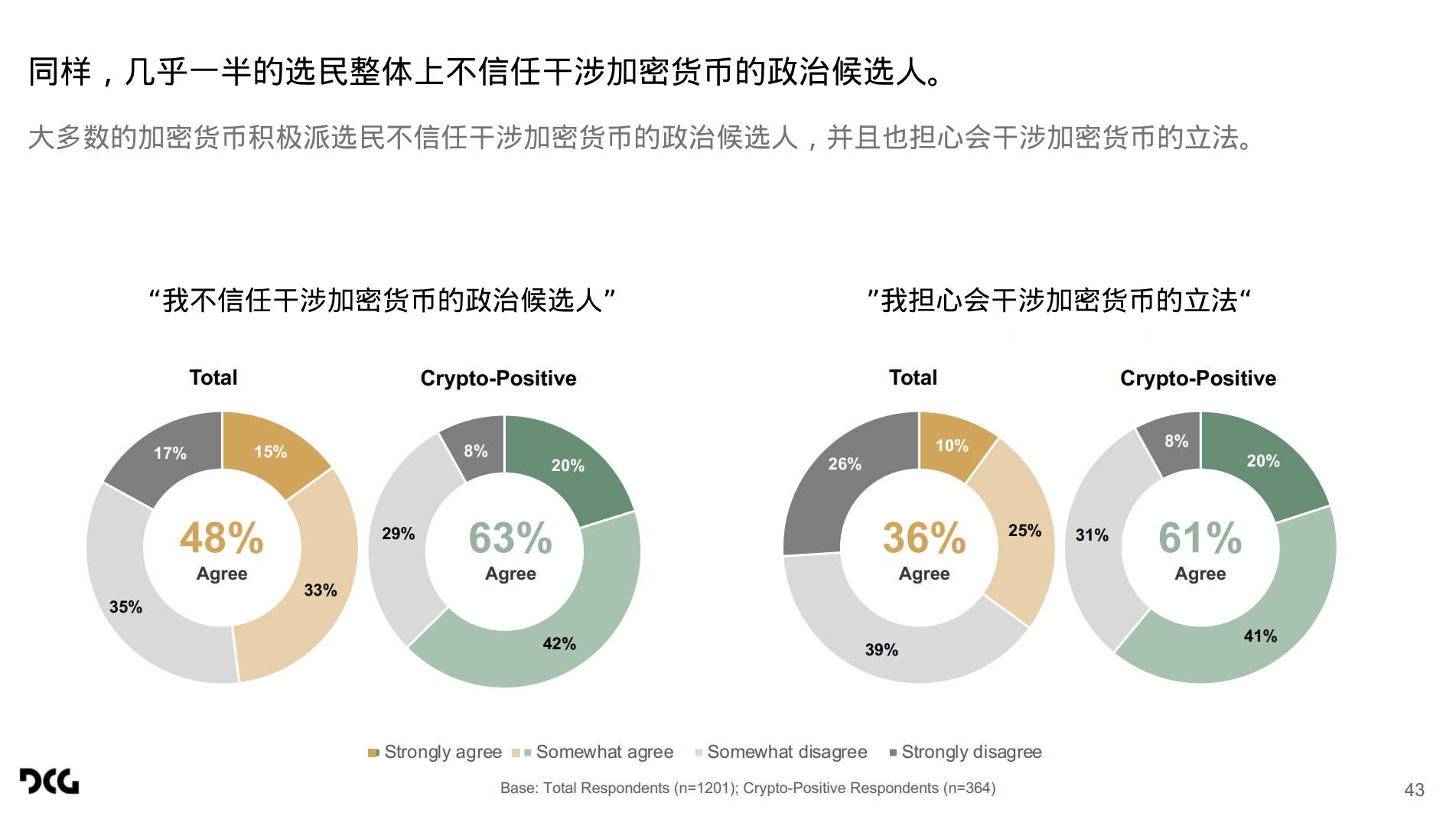
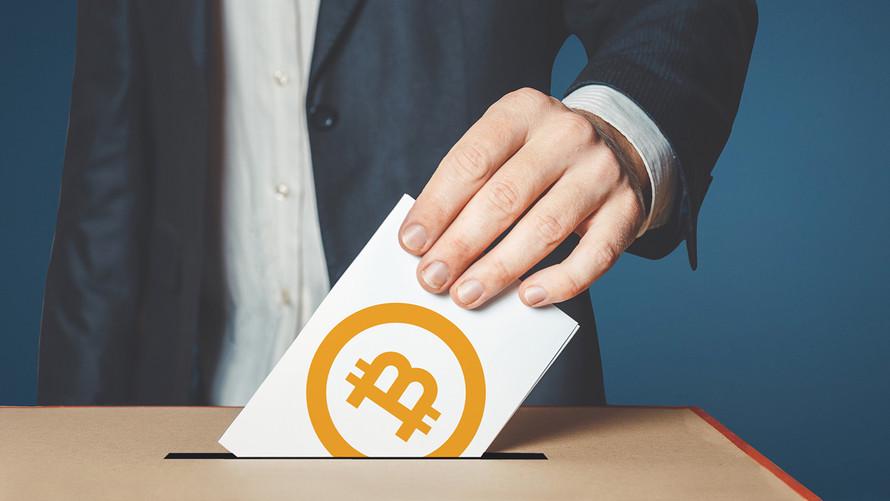
Finding 4: Some notable groups are more open to cryptocurrencies.
-
Crypto-active voters are more likely to be male, young, black or Hispanic, and less likely to have a four-year college degree than voters overall.
-
Compared to the voting population as a whole, crypto-active voters do not differ significantly in terms of household income or political affiliation.
-
Positive attitudes toward cryptocurrencies are not limited to crypto holders — approximately 40% of voters who have a positive attitude toward cryptocurrencies have never owned cryptocurrencies.
-
Among the states surveyed, voters in Ohio had the most negative attitudes toward cryptocurrencies.
What impact will these findings have?
Cryptocurrency’s image among voters could improve with further education
-
Most voters feel they don’t understand cryptocurrencies, and even most crypto-enthusiastic voters feel they don’t understand cryptocurrencies.
-
When asked about their negative views on cryptocurrencies, some cited their unfamiliarity or lack of experience with them, suggesting that more information or experience could potentially change their views.
Voters Positive About Cryptocurrency Represent an Opportunity in the Upcoming Election
-
In a highly polarized political environment, cryptocurrency could be a relatively nonpartisan issue that could gain support among some voters.
-
The demographics of voters who are positive about cryptocurrency — young people and people of color — are particularly attractive to Democratic candidates.
Talking about cryptocurrencies in an informed way may help candidates stand out
-
People show considerable interest in candidates talking about digital currencies, but less trust in candidates actually understanding cryptocurrencies. A politician who demonstrates knowledge of cryptocurrencies could stand out.
-
Voters who support a pro-crypto candidate say they would view that candidate as forward-looking and open-minded, suggesting there may be a halo effect.
In addition to supporting cryptocurrencies, candidates can also win favor by supporting reasonable regulation.
-
Support for radical reforms to cryptocurrencies is high among voters overall and crypto-positive voters. More people would buy cryptocurrencies if they were backed by government protection laws, suggesting that hesitancy about cryptocurrencies could potentially be alleviated by trusted authorities.
-
The suggestion of reasonable regulation of cryptocurrencies within the overall pro-cryptocurrency message could ease the concerns of voters who are skeptical of cryptocurrencies while attracting crypto-positive voters.
The article comes from the Internet:Is cryptocurrency an important issue in swing states? An in-depth analysis of Harris Poll’s crypto survey in swing states
Related recommendation: Building models for 100 countries: Stability.AI Controversial CEO's ambitions
每个国家、每个行业、每种文化,都应该拥有代表自己特色的AI模型。 撰文:王超 3 月 23 日,饱受争议的 Stability AI CEO Emad Mostaque 宣布辞职,未来将全身心投入去中心化 AI 事业。这一消息引起了市场上不小的震动。 Stab…